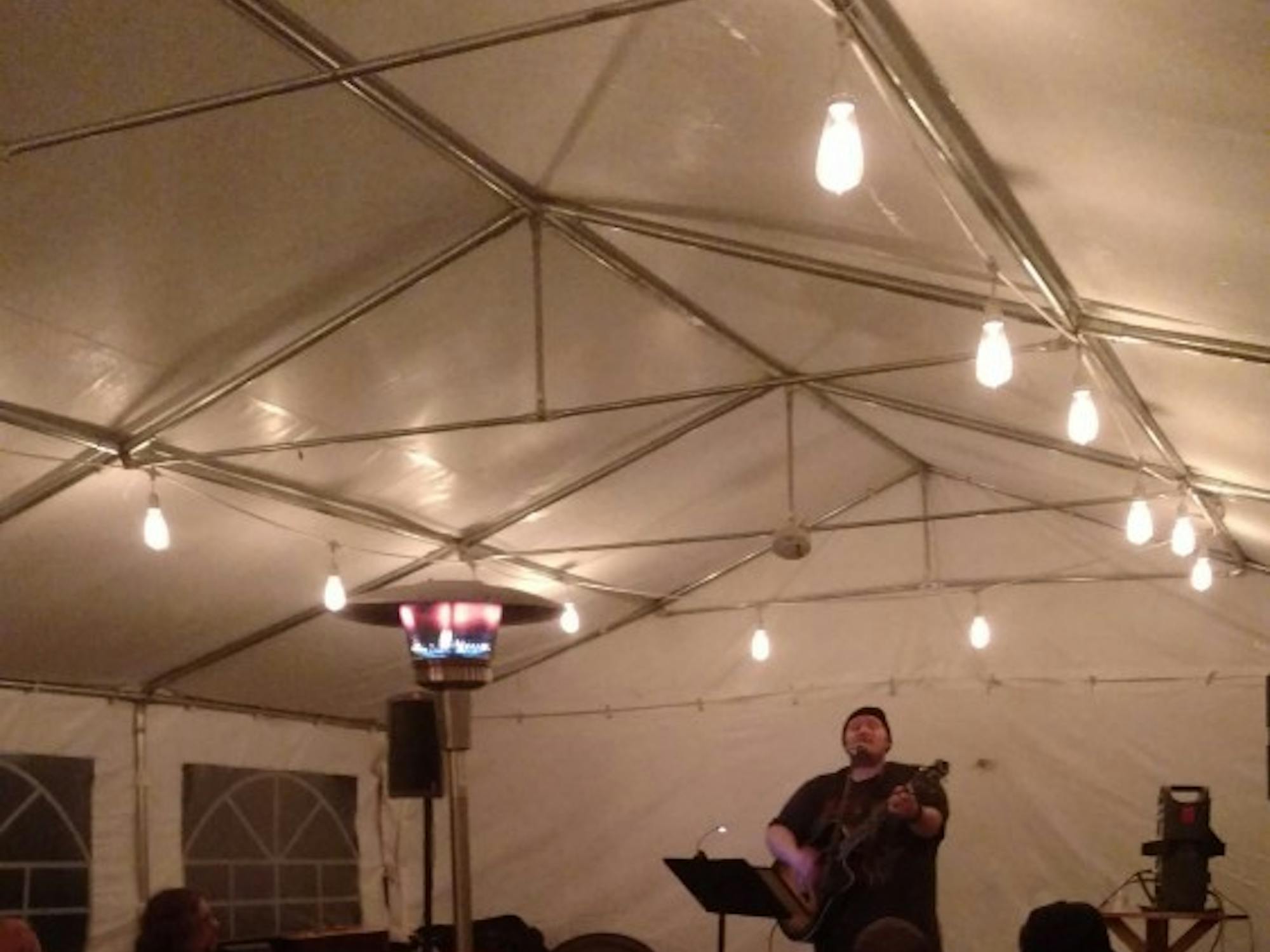What does it take to create an original song? This is the question Cultivate Coffee and Taphouse’s bi-weekly event Songwriter Sundays answers.
“My mother told me I 'can’t make money selling copies of the Mona Lisa.' I knew I had to write my own stuff,” Mike Gentry, a featured songwriter, said.
November 19th marked the second of the Songwriter Sundays. The event took place inside of a heated tent which was placed in the middle of Cultivate's beer garden. This gave the event a very private feeling, although was entirely open to the public.
The mid-November weather would usually make an outdoor event unpleasant but the kerosene space heaters, coffee, and the crowd kept the tent warm enough while the speakers performed throughout the evening.
This Sunday’s speakers were James Henes, Mike Gentry, and Sophiya E. While all three musicians have a variety of musical backgrounds, they are each closely connected to the Ypsilanti arts community.
“We’re excited for a chance to showcase artists in their community and their craft,” Bekah Wallace, Cultivate’s Community Coordinator, said to the crowd.
The small number of speakers allowed for each person to take their time getting into depth with each of their songs, talking about the history and inspiration behind each piece, and anything else that goes into the process of turning an idea into a completed song.
First was James Henes, a singer-songwriter with a background in “Iron Maiden cover songs”, but now has a much softer side. Armed with only an acoustic guitar and his voice, he ranged from the sweet, simple love song “Declaration”, written about his wife, to the post-disaster anthem “Scream,” which he wrote after Hurricane Katrina devastated the country.
For Henes, his songs often come as a result of reworking and retooling ideas, saying that he would often “vent out” a chord progression as he perfected the structure and lyrics.
“More often than not, I write a lot of things out,” Henes said.
Second up was Mike Gentry, who was very quick to point out he was much older than the other speakers performing that night. He recalled a story of teaching Henes’ father how to play guitar when Henes was only a teenager. This wealth of experience has resulted in Gentry's wide catalog of songs, stories, and philosophies on music.
For Gentry, writing songs has become a compulsion. He is a firm believer in letting songs flow out naturally. He spoke of being cautious when “retracing his steps” and revisiting a painful memory. He also expressed wanting to make his music accessible but still true to himself. Authentic performance is Gentry’s preferred way of playing and it’s the only way he knows how.
“I wish I could convey these emotions without hurting myself,” Gentry said. “But I go there, I serve the song.”
Last up for the evening was Sophiyah E, who was a step away from the theme of a man singing and playing acoustic guitar. Sophiyah was playing keyboard and brought guitar player Tre Priest to accompany her. The result was a full, shimmering experience, with Sophiyah’s piano playing and Priest’s guitar playing working together to compliment her voice. She sang about her personal life in her song, “Brown Liquor,” and social issues in her song “Defy.”
Melody played the largest role in Sophiyah’s songwriting philosophy and the rest of her song would usually fall into place around her.
“I’m inspired by life occurrences,” Sophiya said, “I try to find them wherever I can.”
As the night wrapped up, Sophiya addressed another key element to songwriting: the performance and the audience. She had nothing but praise for everybody in the tent that night.
“Energy is so important for this,” Sophiya said, as she prepared to close out the night, “and you guys feel so good.”









